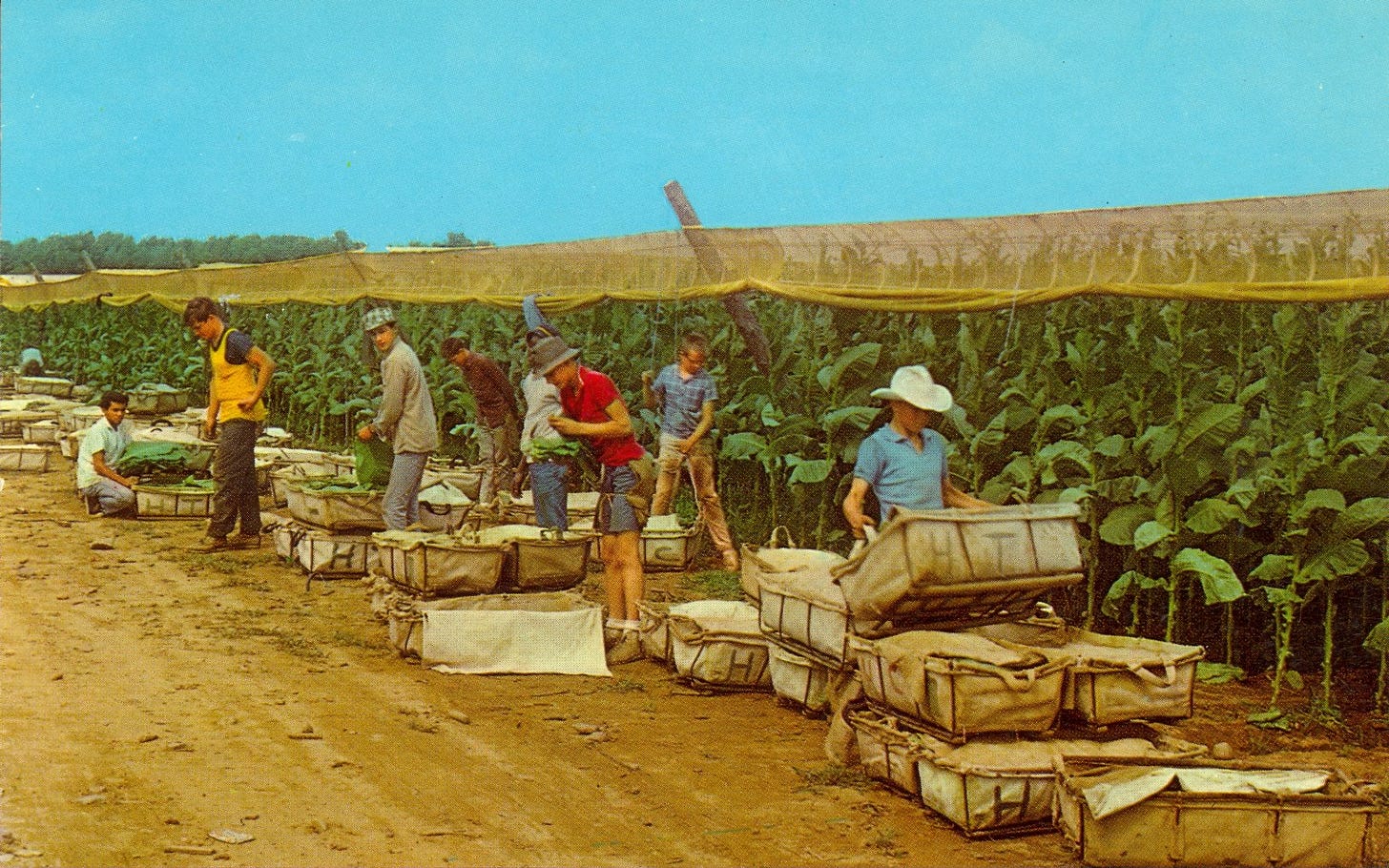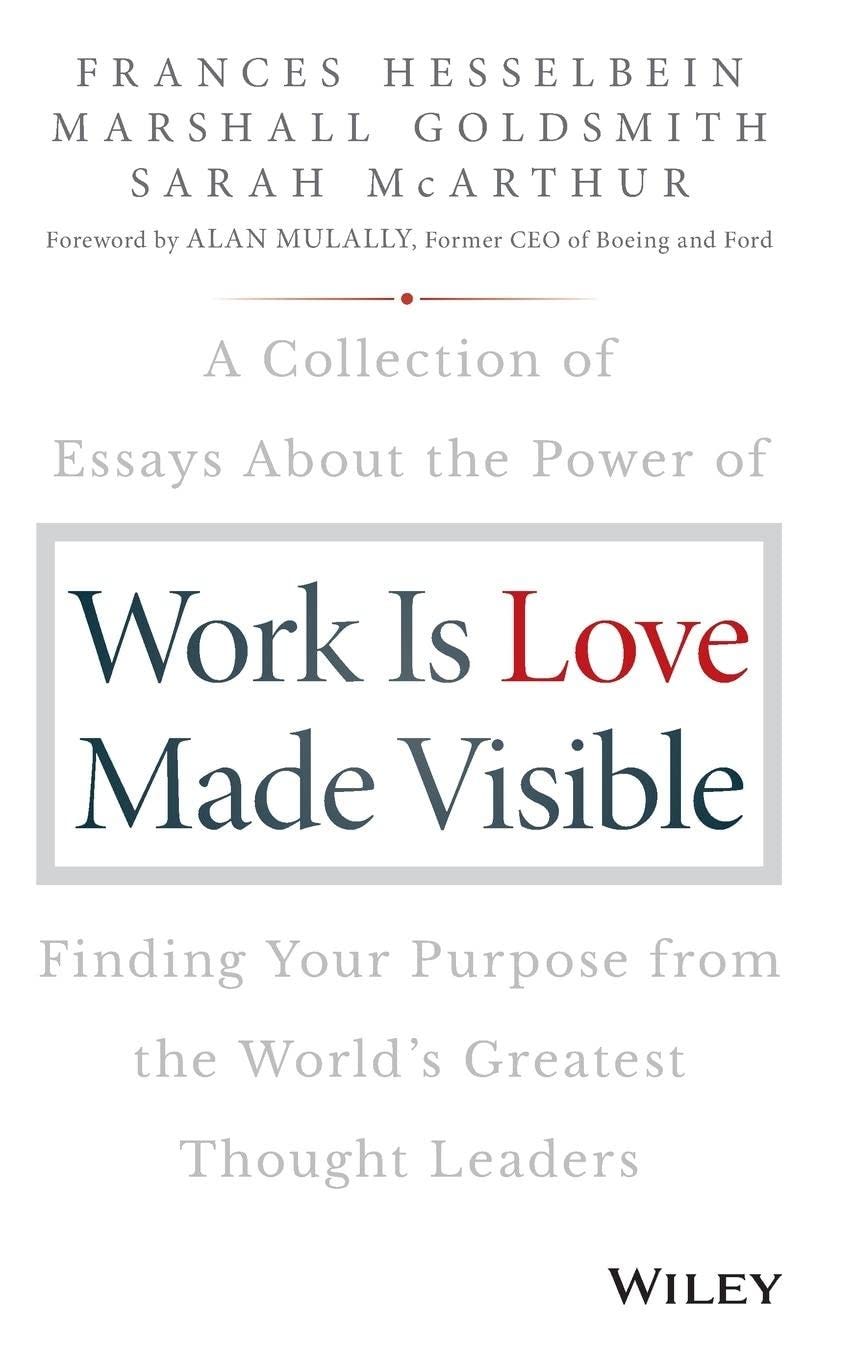Work is Love Made Visible
Do you remember your first job?
“Work is love made visible.
And if you cannot work with love but only with distaste, it is better that you should leave your work and sit at the gate of the temple and take alms of those who work with joy.”
— Kahlil Gibran, 1923
As a child, I remember countless Sunday evenings at my grandparents’ house in rural Connecticut, where the conversation would be winding down in the den and the telltale “tick-tick-tick-tick-tick-tick” of the 60 Minutes intro would hammer in my eardrums — a stark reminder of another school week starting in just over 12 hours.
But this Sunday evening was different; the rays of sunlight danced off of the full maple leaves that swished in the gentle breeze, indicating a day that was not yet over and a week ahead that brought no school.
It was the eve of summer vacation.
Later that week, there was a knock at our back door, the less formal entrance to the house (where friends and relatives entered) on a bright and sunny morning in June in rural Connecticut.
I was fourteen, still small for my age. My yellow shorty pajamas — a pinstriped set that resembled a baseball uniform of a team destined to lose at home that day — clung to my scrawny frame, a final vestige of my childhood that hung on for dear life by its fingertips on the edge of a cliff.
The sun-weathered fellow at the door wore a khaki shirt and overalls, and politely introduced himself to my mother. He was a local farmer and was looking for some neighborhood boys to help him with his tobacco fields that summer. He took a quick glance around one side of my mother, spotting me in the mudroom.
He raised his eyebrows in some combination of disbelief and amusement, as if to say, “That’s a boy?”
Without hesitation, my mother conscripted me into service and instructed me to get dressed to go with Mr. Falkowski.
This kind of work would build character, she said.
And thus would begin my first regular paying job, at the grand scale of two dollars and 85 cents an hour, working on broad leaf tobacco — the leaves of which are used as cigar wrappers.
The following summer, I switched to shade tobacco, used for cigar fillers. But there was little relief under the cheesecloth, with wilty and humid leaves greedily grabbing my arms, trying to keep me from kidnapping their brethren, as I tried to make my way through the rows of plants.
It was grueling work out on the farm, getting blisters on our hands from cutting down the plants with the crude hatchets, sweating in the hot and humid climate, and ending the day with arms and hands covered in the tarry substance from the plants.
But it reinforced the importance of having a regular paying job, being responsible during time off from school, and the value of hard work.
On Work
When a project becomes a slog and when our failures outstrip our successes, work can seem like work. Productivity drops, morale lags, and we tend to just dial it in.
In his masterpiece The Prophet, Kahlil Gibran wrote “On Work,” a poem that captures the essence of work and its connection to our inner well-being. 1
“Then a ploughman said, Speak to us of Work.
And he answered, saying:
You work that you may keep pace with the earth and the soul of the earth.
For to be idle is to become a stranger unto the seasons, and to step out of life’s procession, that marches in majesty and proud submission towards the infinite.”
That first summer job made me intimately familiar with the earth and the summer growing season. In addition to feeling the seasonal cadence, I also immediately grasped the importance of the work, as it led to the creation of a physical product to be consumed.
“Always you have been told that work is a curse and labour a misfortune.
But I say to you that when you work you fulfil a part of earth’s furthest dream, assigned to you when the dream was born,
And in keeping yourself with labour you are in truth loving life,
And to love life through labour is to be intimate with life’s inmost secret.”
Connecting our work with purpose — not necessarily a philosophical, spiritual, or moral purpose, but one with outputs that we can understand, touch, or feel — is energizing. It creates a sense of excitement, or at least a personal investment in the work. The work matters.
“You have been told also that life is darkness, and in your weariness you echo what was said by the weary.
And I say that life is indeed darkness save when there is urge,
And all urge is blind save when there is knowledge,
And all knowledge is vain save when there is work,
And all work is empty save when there is love;
And when you work with love you bind yourself to yourself, and to one another, and to God.”
If you give people meaning and understanding, you create a space for them to care about what they do and to care about each other.
And that’s the secret to finding your own purposeful work and motivating others to find theirs: to care about what you do and those who do it with you.
“And what is it to work with love?
It is to weave the cloth with threads drawn from your heart, even as if your beloved were to wear that cloth.
It is to build a house with affection, even as if your beloved were to dwell in that house.
It is to sow seeds with tenderness and reap the harvest with joy, even as if your beloved were to eat the fruit.
It is to charge all things you fashion with a breath of your own spirit,
And to know that all the blessed dead are standing about you and watching.”
My parents always told me, “Take pride in your work. Make sure you can sign your name to it.” Which was another way of reminding me to do my best, even when no one was looking. Because I should care about the work, my reputation, and my self-respect.
“Work is love made visible.
And if you cannot work with love but only with distaste, it is better that you should leave your work and sit at the gate of the temple and take alms of those who work with joy.
For if you bake bread with indifference, you bake a bitter bread that feeds but half man’s hunger.
And if you grudge the crushing of the grapes, your grudge distils a poison in the wine.
And if you sing though as angels, and love not the singing, you muffle man’s ears to the voices of the day and the voices of the night.”
How are you showing up? Who you are and the way you put yourself into your work radiates outward to others — colleagues, leaders, customers, and everyone.
As the summer winds down, we find ourselves wishing we could hold onto the longer days, embracing the warmth of the sun and its rejuvenating effects, making us children once again — adolescents who live in the moment, unencumbered by tomorrow, next week, or next month.
Decades later, the “tick-tick-tick-tick” of the 60 Minutes stopwatch still signals the winding down of the weekend.
But rather than dread or ennui, my Sunday evenings are filled with excitement, energy, and enthusiasm, charting the course for the week ahead, because I get to work with people I care about.
And I love that.
I hope you do too.
There’s so much to learn,
The quote “work is love made visible,” from The Prophet, is also the title of a book by Frances Hesselbein, Marshall Goldsmith, and Sarah McArthur (Work is Love Made Visible). My mentor Alan Mulally wrote the foreword.
These books are available on the list of books mentioned in this newsletter.
You can also check our Books section in the navigation above.
When you purchase books through these links, it supports Timeless & Timely.








Great topic Scott and yes I remember my first job was helping my father as he was a carpenter among so many other trades he knew as a person that came from Italy as a youth. I later obtained other jobs on my own and of course as a teenager mowed lawns, shoveled snow and the like to make some $. My father instilled in my a great work ethic working two jobs all his life as well as my mother being a telephone operator since she could work until retirement. As the Good Book (Catholic Bible) tells us that hard work builds our character and establishes the vital connection between our humanity and God's Divinity in which we have to work at each day to get close together! Peace be with you!